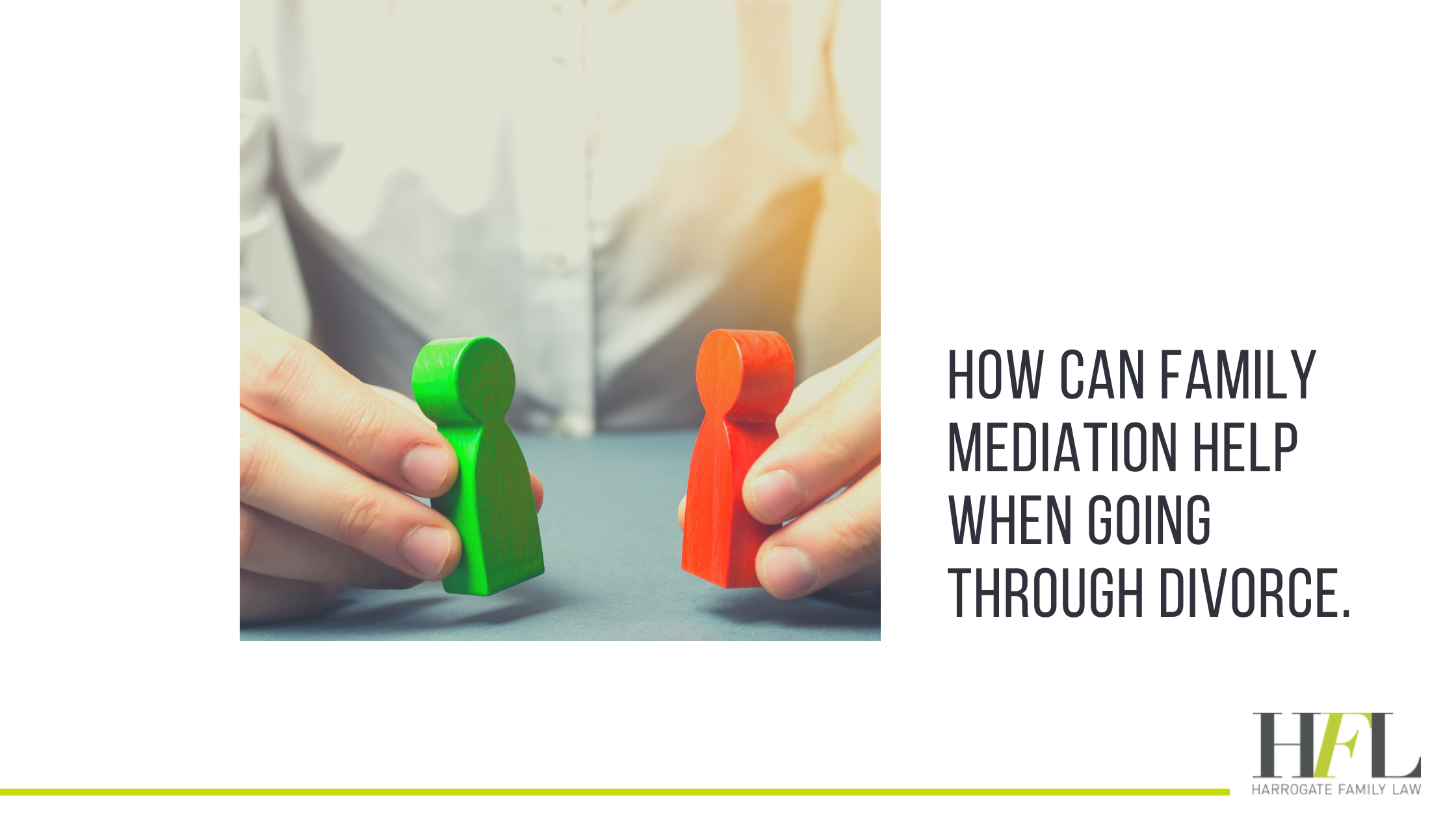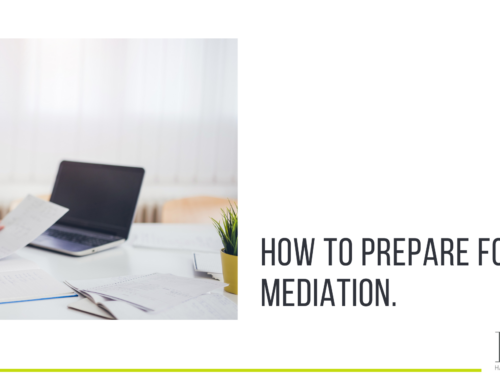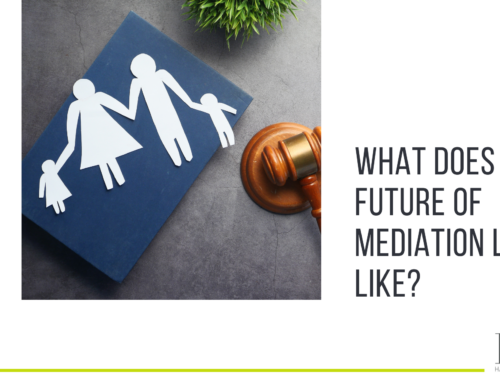Mediation is just one of the many options available for couples looking to separate or divorce. Whether it’s to discuss potential arrangements for the children or the finances, mediation can be a constructive opportunity for couples to come together and resolve any issues on neutral ground.
That being said, expert legal advice is still of vital importance. At Harrogate Family Law, we never tire of advising our clients to speak to a solicitor. It’s imperative that all couples contemplating a separation or divorce seek legal advice, regardless whether you choose to go to mediation or not.
Let’s take a closer look at mediation, what it is, some of the benefits, and the potential pitfalls you might come across.
What is mediation?
In the context of family law, mediation is a process designed to help settle disputes between couples and families. It’s overseen by a mediator, an independent and objective person, who facilitates discussions between the parties in order to reach a solution that works for everyone.
The pros of mediation
Objectivity
The neutrality of family mediation is one of its biggest advantages. Whether the situation is amicable, or characterised by conflict, objectivity is essential to help couples separate their emotions from the reality of the situation.
A family mediator is there to help maintain productive communication between yourself and your soon to be ex, remaining impartial and completely neutral, no matter the circumstances. There are no ‘winners’ or ‘losers’. Each person’s feelings, opinions and needs are acknowledged. This is very important when tensions are running high, and helps you both to remain proactive in your approach to ensuring that there’s a positive approach that looks to the future.
Potentially more cost-effective
In some circumstances, mediation can save both time and money. In the midst of a cost of living crisis, this is definitely a consideration for many separating couples, not to mention the fact that financial stress and pressure is one of the leading causes of divorce.
The Family Mediation Voucher Scheme
There’s currently a big push from the government to encourage more couples to explore the available alternatives to court proceedings, and this includes the Family Mediation Voucher Scheme.
The scheme provides funding for those people who are interested in exploring mediation to resolve any differences around the arrangements for the children, or where the matter involves a child, but who are struggling to afford it. You can learn more about the voucher scheme here.
The pitfalls of mediation
Whilst mediation has a number of benefits, there are potential pitfalls. Perhaps most importantly, any agreement made during mediation isn’t legally binding, and isn’t enforceable in the event that your partner changes their mind or goes back on their word. In order to legally enforce any decisions made, there will need to be a contract drawn up by a solicitor or the court will need to approve the agreement, and put it into a legally binding court order.
In addition, mediation is reliant upon both parties cooperating. If your ex partner refuses to engage, there’s very little you can do to force them to do so.
Increased costs
Yes, mediation can sometimes reduce the costs involved in divorce, but there’s also the possibility that it can add to them. For example, more complex issues are likely to need more sessions, which in turn increases the cost. In addition, if you and your ex are unable to cooperate and there’s heightened tension, the process may well take longer and incur more cost.
The other thing to consider is that if mediation isn’t successful, you may still need to start court proceedings, meaning that you’ll incur a double cost.
Is it appropriate?
It’s important to ensure that you’re confident that you understand all of the issues related to your divorce, and have all of the knowledge you need to make the right decisions for your future. This is why legal advice is absolutely vital.
For mediation to be successful, it’s important that you feel safe, secure and comfortable. If you’ve been the victim of domestic abuse from your ex partner, and coercive control has been a feature of your relationship, it may be that mediation simply isn’t appropriate. However if you wish to use mediation, safeguards can be put in place to protect you and empower you within the process.
What next?
Whatever the circumstances, it’s always best to seek independent legal advice before making any decisions in relation to mediation. The right solicitor will be able to assess whether mediation is appropriate for you, and give you a more solid understanding of what you can expect from the process and the other dispute resolution options available to you. If you wish to proceed with mediation. they will also be able to help you find the right mediator for you and make a referral for you.
If you want the best possible outcome for you and your family, put Harrogate Family Law in your corner. We can help the process run more smoothly whilst keeping your best interests at the very centre. Contact us today to book a consultation with our friendly team.






